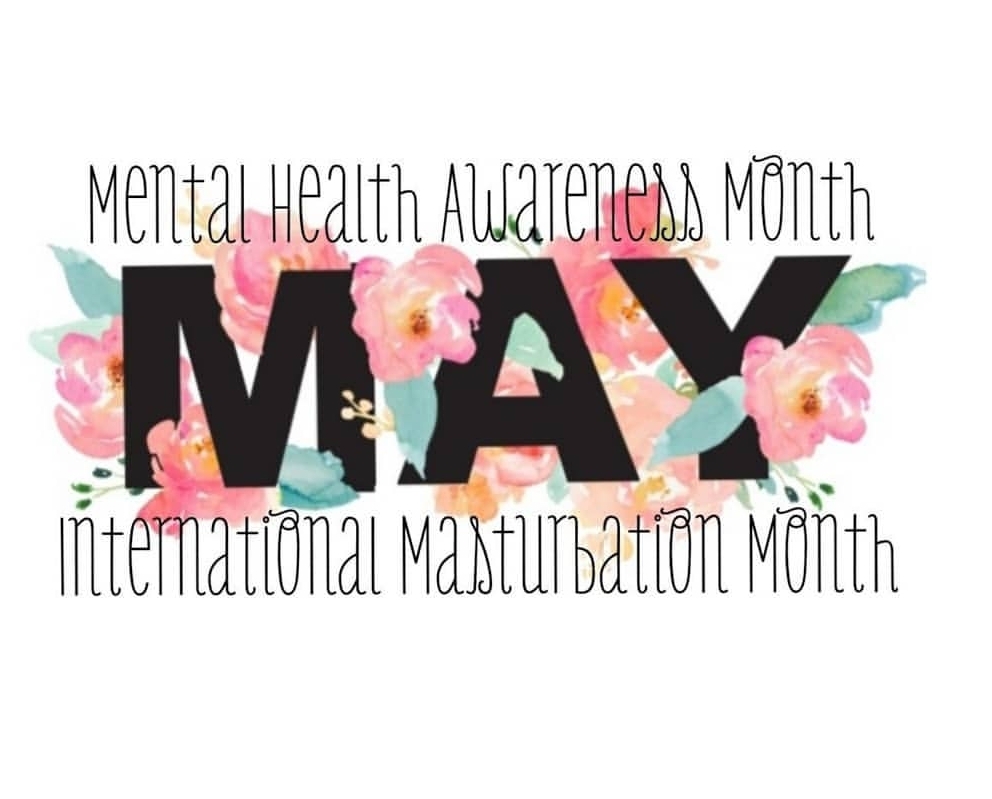Ever been in a situation where somebody is telling you a story and you get a PANG of emotion (fear, rage, anxiety, sadness)?
It may take you by surprise and leave you feeling confused. Thinking that it's disproportionate to what was happening...well you were triggered! Some of us are great at identifying these triggers and some of us need more help.
Triggers can be anything from environmental factors, opinions, certain words or even just people! Triggers also tend to have a physiological reaction: palpitations,dizziness, hot flushes, nausea etc.Identifying triggers is no easy feat but it will certainly serve you. Without becoming aware of triggers you are at the mercy of your emotions manipulating you.
Pay attention to your physical reactions. Like the ones I outlined above.
Be mindful of any thoughts or words that whizz through your head after the physical response
Notice your surroundings: who are you with, what are you doing, what can you see?
What were you doing before you were triggered?
Keep a journal on your phone or at home. See if you can find a pattern
Be patient! This takes practice and time so show yourself some self-care!
Every week in the UK 84 men take their life by suicide, one man every two hours. Suicide is the biggest killer of men under the age of 45.
Support @calmzone new campaign #project84 they partnered with the internationally renowned artist, Mark Jenkins, and his collaborator Sandra Fernandez, to create 84 individual sculptures. Friends and family members of the deceased helped in the creation process of the figures. Each one, a poignant reminder of a real life lost and a call to society to come together and ultimately take a stand against male suicide.Visit the sculptures on London's Southbank Promenade from 26th March or alternatively head to their website to read some of the stories of these men as told by family and friends.
Recently I have found myself thinking a lot about forgiveness. Partly because of articles I am writing about trauma and partly due to research I have been doing on culture and religion. Forgiveness is intertwined in most religions and indicates holding power.
There is this idea that in order to move forward, we must forgive. That with forgiveness we will find true happiness and freedom. I don't believe this is the case. I am not talking about disagreements or arguments that are had between couples or family members. It's those who have experienced trauma or abuse at the hands of others, individuals who walk into my clinic room, holding pain and suffering. Although the idea of forgiveness seems simple, it can be very emotionally loaded and complex, particularly for trauma survivors.
I understand, of course, that if a person comes in and finds that the word “forgiveness” resonates, I do not discourage it. Forgiveness is highly personal and individual. You do not need to forgive so you can move on, instead move on in the right way for you.
I have saved so many posts by @theequalityinstitute with the aim of posting them, but I can never decide which one!! They are all vital and powerful. I decided to choose this one for today because I believe that there still much more work to do around debunking stigma around Feminism. Feminism is about equality for ALL womxn. Feminism needs to be intersectional. It is important to to know that intersectional feminism points out that there are multi-layered facets in life that womxn of all backgrounds face.
The whole purpose of intersectional feminism is to listen to different kinds of feminists, not just ones like yourself. In other words; if you don't stand for all womxns rights , you don't stand for any
My lovely, talented friend @yattire has started up sound bath classes. I have been blessed enough to experience it!
Sound Baths are incredibly relaxing and beneficial to mental health. Researchers have found that sound waves can reduce blood pressure as well as enhance sleep and memory. Binaural beats, tones played simultaneously that are close in pitch but not identical, can be found in a sound bath session. Studies show these sounds can reduce anxiety and enhance mood states. Sound has been found to be a useful “brain exerciser”, helping to improve cognitive functioning and help with mental and emotional health.
I would really recommend having a go if you want a change to mindfulness and experience an escapism that can help heal you at the same time.
We all know the "New Year, New Me" phrase that is thrown around regularly this time of the year. We set high expectations for ourselves and attempt to change those pesky "flaws" that we see.
Many of our resolutions actually re-enforce most of the negative conceptions we already have and guilt begins to flourish when the resolutions fall through.
Instead, why not allow this year to be the one when you put your own needs first, to honour where you are and what you've accomplished no matter what.
Can you make this the year of asking for help and allowing yourself to accept support? To be guilt free and self compassionate?
Life is too short and too uncertain to spend it surrounded by things that drain you. Perhaps 2019 can be about taking stock of what and who feed your soul and get more of it!
Anxiety is isolating and can feel like it is eating you up from the inside. The physical manifestations can be debilitating and exhausting. If you look closely at anxiety, you can begin to see that our thoughts, feelings, behaviours and physical symptoms all interact and combine to keep our anxiety going. Things like mindfulness, distraction techniques, CBT skills can assist with alleviating it. However it's important to get to the root cause. Talk to a friend, family manner or therapist to understand yourself better and what is triggering it.
Suffering in silence with anxiety only exasperates it.
Suicide is the single biggest killer of men aged under 45 in the UK. Men remain three times as likely to take their own lives than women. 4,382 men committed suicide last year in the UK. There is a preconceived notion that those who commit suicide are unwell or have had huge life obstacles. Actually, 75% of people who take their own lives have never been diagnosed with a mental health problem, and only 5% of people who do suffer from depression go on to take their own lives.The reasons behind every individual suicide are unique and complex and not simply explained.
Calm is the number one charity that is focused on suicide in men. Debunking myths and stigma, Calmzone is doing all it can to reduce these suicide rates (which has happened over the last 3 years).
Calm tackles this by giving men a safe place to talk. Its helpline is ru by eight staff members who work seven nights a week fielding over 5,000 calls and web-chats a month.
CALMZONE:0800 58 58 58
SAMARITANS:Call 116 123 any day, any time.
Some Therapy Thoughts on self-love.
1. Watch your self-talk. You'd say kind and loving words to a partner, words that are truthful and heartfelt. Do the same for yourself.
2. Listen to your needs. Being aware of them facilitates a better self understanding.
3. Protect yourself.
Remove or combat toxic people from your life so that you may flourish.
4. Forgive yourself. We all mistakes, allow yourself to and let them go.
5. Hold yourself to account. Self love is about being your own cheerleader. Self motivation and drive can only some from within so push yourself and celebrate those wins.
Easier said than done and of course we all do it. But it's important to remember that Instagram is not real life. Most of the time it highlights best parts of people's lives while ignoring the undesirable. Social media comparisons can have a detrimental effect on mental health. The endless comparisons steal the confidence and self-worth from under your nose. So try to remind yourself that it's not real life, you're looking through a lense that someone has set up for you to view. If you feel that you can't stop comparing; unfollow. Your self-care needs to be prioritised.
Many of you may not know this but there is more one way of being aroused! These different types are like building blocks. You may possess more than one and have a primary and secondary. Read through to see if any resonate with you.
The Sensual Type: is a person who is aroused by the senses. Their desire is sparked by the feel of skin on skin, by smells or taste. It is driven by the body and craves the senses to feel arousal.
The Cognitive Type: this is someone who is fuelled by desire by using their mind and thoughts. Fantasies and images increase their arousal.
The Intimacy Type: is aroused by the feeling of being able to connect with their partner. They feel desire when there is intimacy, trust and sharing.
The Attractor Type: feels aroused by being ‘seen’. They get turned on from arousing their partner or alternatively when they are seen as attractive or ‘sexy’ by their partner.
As I mentioned you may not have just one way by with you get aroused. However, knowing what turns you on can greatly help you to have a confident sex life. It facilitates tapping into your arousal when you most want it. So think about the last 3 times you were filled with desire....what was happening around you? What were your thoughts? What started it?
1 in 4 people in the UK will experience a mental health issue this year.
If you are worried about someone it can be difficult to know what to do. When you are aware there is an issue, it is important not to wait. Waiting and hoping they will come to you for help might lose valuable time in getting them support. I have spoken to people previously who have been too afraid to address mental health with the person they are worried about. Well I say stick on the kettle and use some of these tips:
1. Set time aside with no distractions
It is important to provide an open and non-judgemental space where the person feel safe and secure.
2. Let them share as much or as little as they want to
Let them lead the discussion at their own pace. Don’t put pressure on them to tell you anything they aren’t ready to talk about. Sometimes it's just giving people time.
3. Don't try to diagnose or second guess their feelings
You probably aren’t a medical expert and, while you may be happy to talk and offer support, you aren’t a trained therapist. Try not to make assumptions about what is wrong or jump in too quickly with your own diagnosis or solutions
4. Listen. Really listen.
Listening is actually quite a difficult skill to master. Most people listen to respond. Try to stop your mind wandering and focus on what they are trying to tell you.
5. Offer them support with services.
It maybe important that they see a GP in the first instance. Encourage them to do so with the support of yourself so they don't feel alone.
Following a great talk hosted by #CliniQ
I'm taking stock before my long evening with @spectra_london 'Young Trans Peoples Survey' from 2016. Three stats that stand out to me are: 💜 Loneliness and isolation being key concerns. With 47% of respondents feeling lonely 'often/always'.
💜Mental health and emotional well-being was also prominent. 57% of respondents said they experienced difficulties with their MH and well-being 'most of the time.
💜 Bullying in school and at work. A whole 68% of people have been the subject of bullying just this year.
So much more needs to be done by all of us to support these young people.
Anxiety is isolating and can feel like it is eating you up from the inside. The physical manifestations can be debilitating and exhausting. If you look closely at anxiety, you can begin to see that our thoughts, feelings, behaviours and physical symptoms all interact and combine to keep our anxiety going. Things like mindfulness, distraction techniques, CBT skills can assist with alleviating it. However it's important to get to the root cause. Talk to a friend, family manner or therapist to understand yourself better and what is triggering it.
Suffering in silence with anxiety only exasperates it.
This day last week the @thisisleika panel spoke about porn and sex education.
We all were of the consensus that sex education needs to incorporate it. Including areas such as pleasure, consent, relationships and sexuality. Currently porn is easier to access than sex education and that's not going to change anytime soon. By the age of 9 many kids already have stumbled onto it. So start by having the conversation. There are really great resources out there to assist, such as #thepornconversation developed by the amazing @erikalust www.thepornconversation.org. @katemoyletherapy also did a piece this week for #ageid, the link is in her bio.
We can't ban crappy porn but we can talk and teach our young people, so that they may feel empowered and comfortable.
What is self love? It really means something different for each person, because we all have many different ways to show that we love ourselves. The real question is, what does self love look like to me?
Supportive actions often spell the difference between success and failure. One way to be an encouragement to your spouse is to be a supportive partner.
By being supportive, your actions and attitude will show that you believe in your partner and want the best for them
Support and motivation will allow you to grow individually but also flourish as a partnership. Why do we choose to commit to spending the rest of our life with partners? Not because it’s easy. One of the MANY reasons is that we have someone that supports us through our life journey. Someone who will always be there for us, to believe in us, appreciate, and support us in both the good and bad. Working on supporting each other will build on your foundation as a couple.
An anxiety disorder is a condition characterised by high levels of fear or worry that get in the way of your average day.
Common anxiety disorders include problems , difficulties in social situations, excessive worry that is difficult to control, stress over issues such as relationship problems and fears of specific events or objects (phobias).
Common symptoms range from tummy aches or headaches, irritability or easily upset, feelings of panic, sleeping problems, frequent reassurance seeking, muscle tension and concentration problems. If you are suffering with anxiety the first step is to talk about it. Sharing with a partner, friend or family member can ease the burden and possibly gain some insight and perspective. Therapy can greatly assist, especially Cognitive Behavioural Therapy.
Masturbation is a great form of #selfcare that is fun, healthy and cheap!
In keeping with the theme of mental health it is also important to point out that masturbation can cause issues for some people. I often ask clients three questions which allow me to gain an understanding as to whether support is needed:
Can you cut down on your masturbation? Is it having a negative effect on your life and relationships? Do you feel shame/guilt following masturbating?
If none of these apply to you then happy masturbating! Otherwise there are many specialists out there that can support you.
Reading the piece in the @nytimes with Uma Thurman today I was really struck by one of the final paragraphs.
When you tell your child that they were harmed because another person likes them, you’re connecting pain with love. That not only normalizes being abused, but also abusing others.
This then perpetuates further into adult relationships and normalises cruelty and unkindness from partners. If love is patient, kind, understanding, and compassionate, then surely love is not cruel, mean and violent?




















